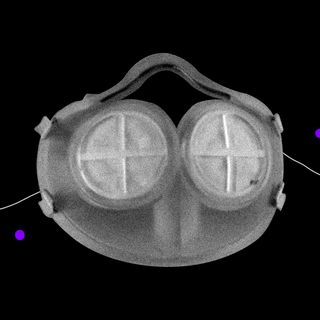A common medical device, the pulse oximeter, has suddenly gained attention for its ability to monitor one symptom related to Covid19 — low oxygen levels in the blood. These oximeters have been flying off the shelves because people seem to believe that they can diagnose Covid19. They can’t.
What is a pulse oximeter?
A pulse oximeter is a device that is typically clipped over a finger to measure levels of oxygen in the blood.
The device is usually purchased for home use by patients with chronic lung conditions and respiratory problems who need to constantly monitor their oxygen supply. It is also used by performance athletes, or people living at high altitudes.
What is the range of normal blood oxygen levels?
The normal level of oxygen in the bloodstream ranges between 95% and 100%. Anything below 95% could indicate a lung problem. And levels lower than 92% could suggest a serious illness that requires supplementary oxygen, according to Dr. Arvind Kumar, director, Institute of Robotic Surgery and the Chairman of Centre for Chest Surgery and Lung Transplantation at Sir Ganga Ram Hospital in New Delhi.
How does a pulse oximeter help with Covid19?
A pulse oximeter is just part of a larger screening and testing process for Covid19, and isn’t meant to detect the disease on its own, says Dr. Surya Kant, professor and Head of Department of Respiratory Medicine, King George’s Medical University (KGMU), Lucknow.
When oxygen levels in blood and tissues fall below 94%, it results in a condition called hypoxia, which is a major reason for death among the infected population, he adds.
Hypoxia, which causes shortness of breath, may not be easy or sometimes possible for a person to self-assess. In some Covid19-positive cases, patients may also suddenly develop ‘silent hypoxia,’ in which they feel alright but don’t experience any shortness of breath even though their oxygen levels are dangerously low.By the time they do experience shortness of breath, they will have already developed moderate-to-severe pneumonia that requires hospitalization and in severe cases, even being on the ventilator.
Related on The Swaddle:
Are You the Pandemic Prepper, or the Freeloading Denier?
Should everyone have a pulse oximeter at home?
With a disease like Covid19, with so many unknowns, not enough medical facilities, testing, and a list of symptoms that keeps changing, the situation can be quite nerve-wracking. Amid all this, having anything that can provide results about one symptom with near-accuracy, as the pulse oximeter, can be comforting, but that does not mean everyone needs to have one.
For those who are otherwise healthy and have no symptoms, there is no need to buy one, and in fact, doctors also recommend leaving the supply for those who really need them. Furthermore, using pulse oximeters correctly is key to getting accurate readings, and there are many ways they might be unintentionally misused at home, rendering the readings useless from a clinical standpoint.
Low oxygen level is just one possible symptom of Covid19. Even if blood oxygen levels are healthy, it doesn’t mean that a person doesn’t have Covid19. So while pulse oximeters are important tools for healthcare professionals in assessing Covid19 patients, they are not to be used as home diagnostic tools.




